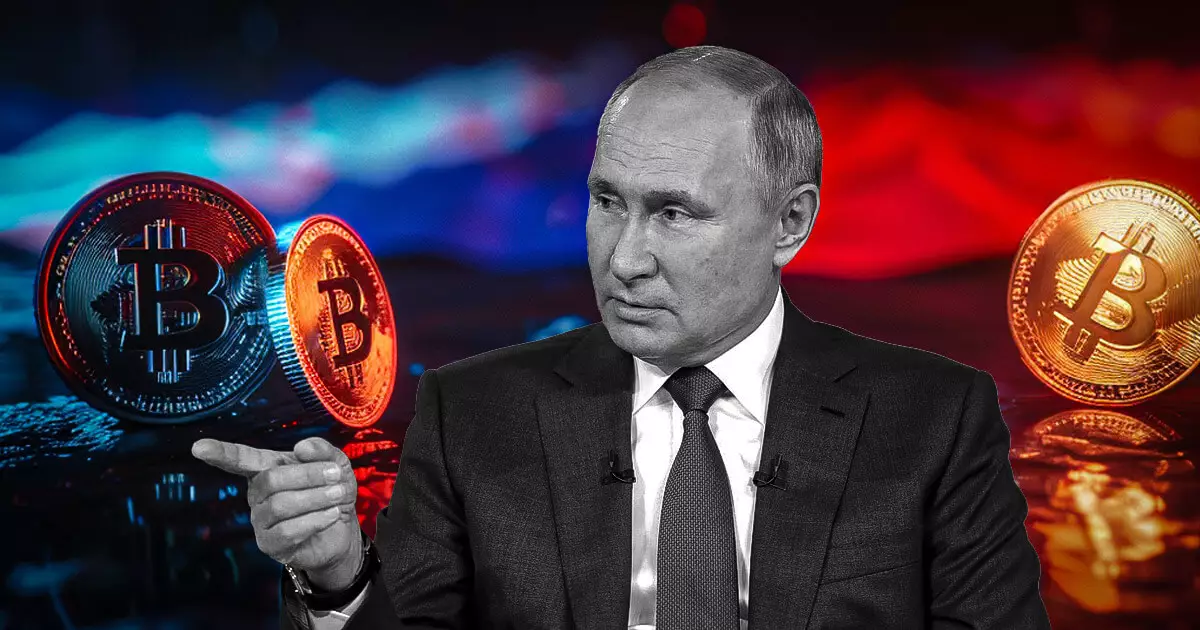In a bold assertion during the Investment Forum in Moscow on December 4, Russian President Vladimir Putin heralded Bitcoin and other digital currencies as unstoppable forces in the global economy. His remarks emphasize the potential of these currencies to mitigate financial inefficiencies that plague traditional monetary systems. By positioning Bitcoin as a prospective global reserve asset, Putin challenges the longstanding dominance of the US dollar, which he argues is often manipulated by the US government to advance its political aspirations. This perspective not only reveals Russia’s strategic pivot toward digital currencies but also signals a growing global discontent with reliance on a single hegemonic currency.
Putin’s comments were particularly salient in light of geopolitical tensions, particularly the freezing of approximately $300 billion in Russian reserves by Western nations following the escalation of the Ukraine conflict in 2022. This significant financial move has prompted a shift in how countries view their monetary sovereignty. By fostering an environment where alternatives like Bitcoin gain traction, Russia signals a clear discontent with Western financial dominance and the vulnerabilities associated with it. As governments explore decentralized currencies, the desire for more resilient economic frameworks becomes evident, as nations seek avenues of financial independence from foreign influence.
The recent enactment of a law categorizing cryptocurrencies as property in Russia demonstrates a crucial step towards legitimizing digital assets within its economic structure. By providing tax relief for crypto transactions and exempting mining operations from value-added tax (VAT), Russia aims to create a conducive environment for innovation in financial technology. This move underscores a pragmatic approach to economic strategy; by embracing cryptocurrencies, Russia endeavors to strengthen its financial system against external pressures, thus reinforcing its economic resilience amid Western sanctions and financial isolation.
Notably, the ongoing Ukraine conflict has illuminated the practical significance of cryptocurrencies as a means of transaction. With conventional banking services disrupted and traditional financial channels hindered, digital currencies have emerged as a vital lifeline for individuals navigating the chaotic economic landscape of war. Cryptocurrencies have thus functioned as a bridge, facilitating the movement of funds across borders while challenging existing financial paradigms.
Putin’s assertion aligns with broader discussions at international gatherings, such as the BRICS summit, where the potential of digital currencies to transform cross-border payment systems was highlighted. As countries consider alternatives to established financial systems, the dialogue surrounding cryptocurrencies illustrates a potential shift in global financial power dynamics.
In contrast with the rapidly evolving stance on cryptocurrencies in the United States, where a pro-crypto environment is developing under the incoming administration, Russia’s advocacy for Bitcoin may catalyze other nations to reassess their regulatory frameworks. If this trend continues, the interplay between national policies and digital currencies could redefine the landscape of international finance, paving the way for a more decentralized and less dollar-dependent world.
As more countries embrace the promise of digital currencies, the groundwork for a new financial era is being laid, one that promises to challenge existing hierarchies and create more equitable economic structures.















